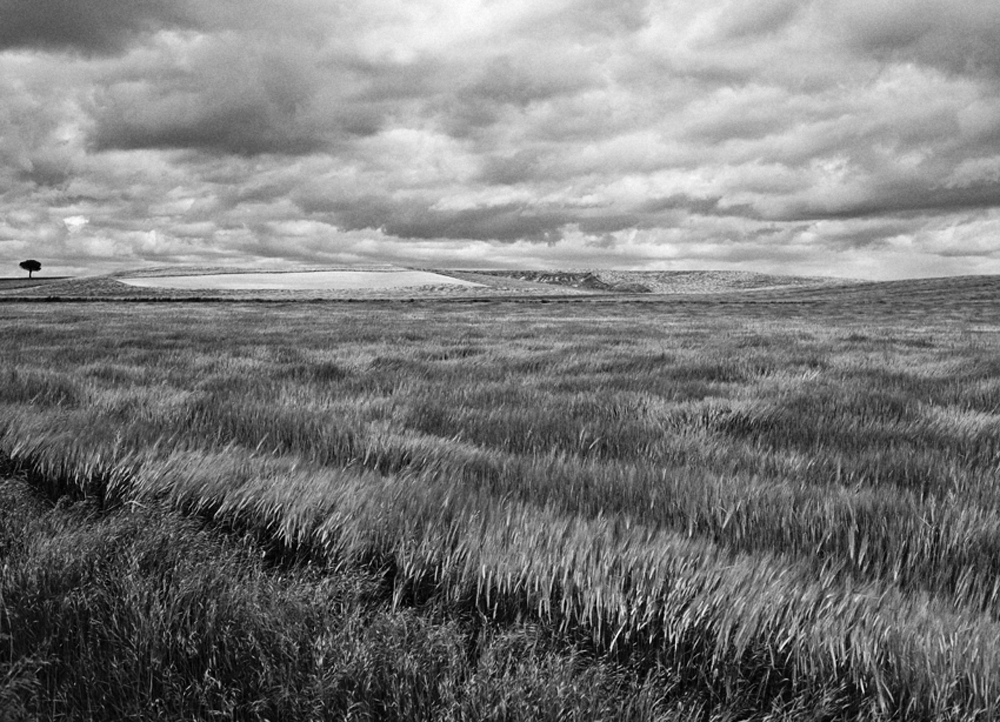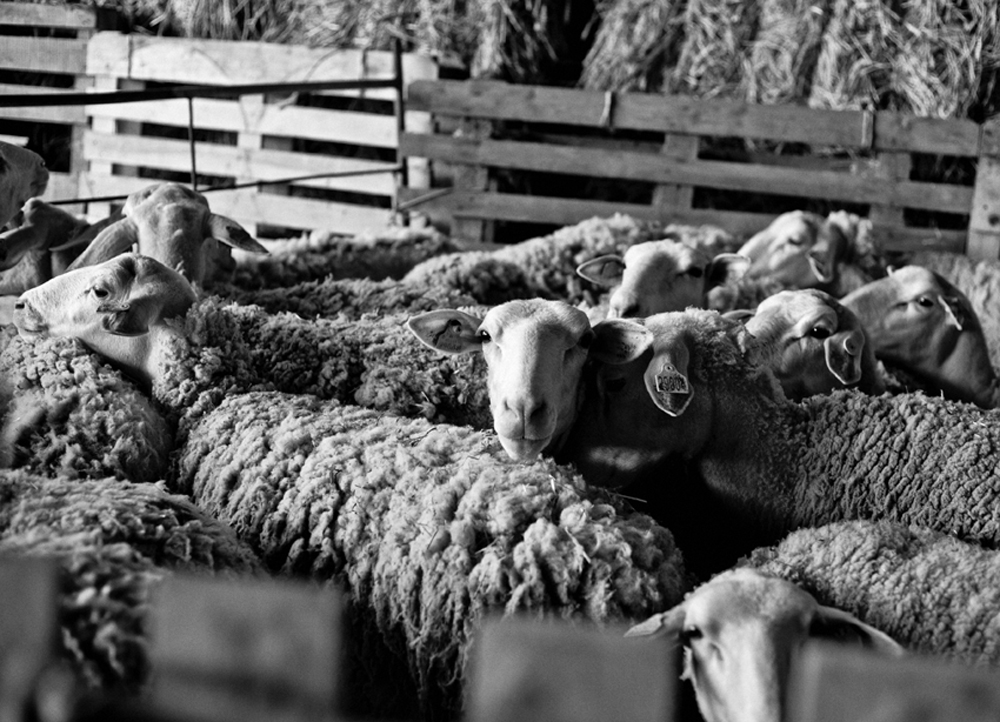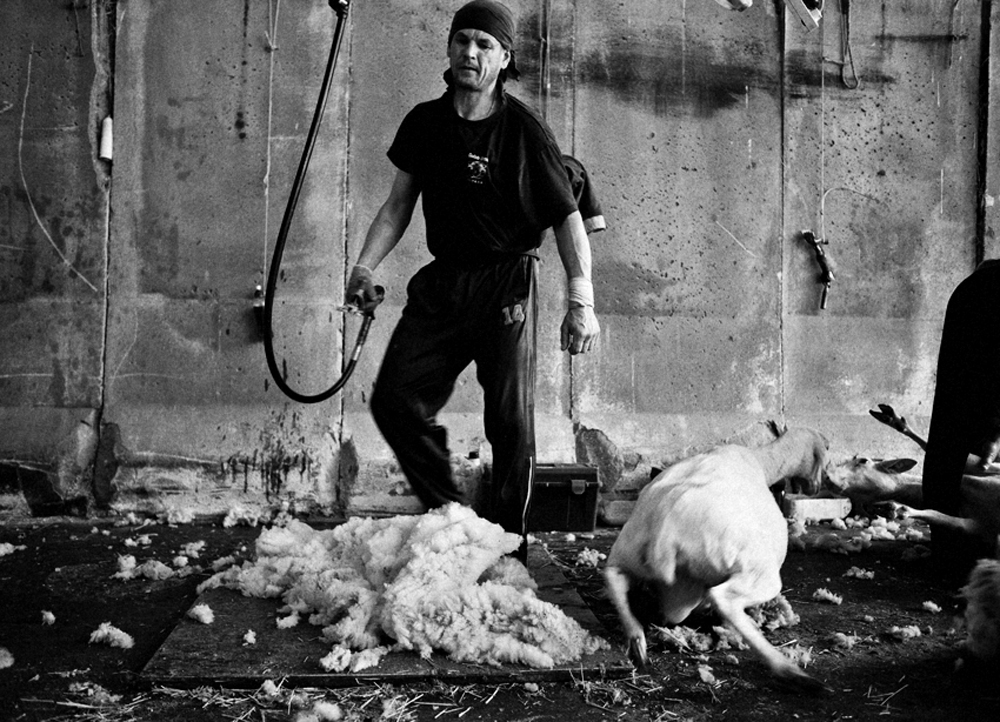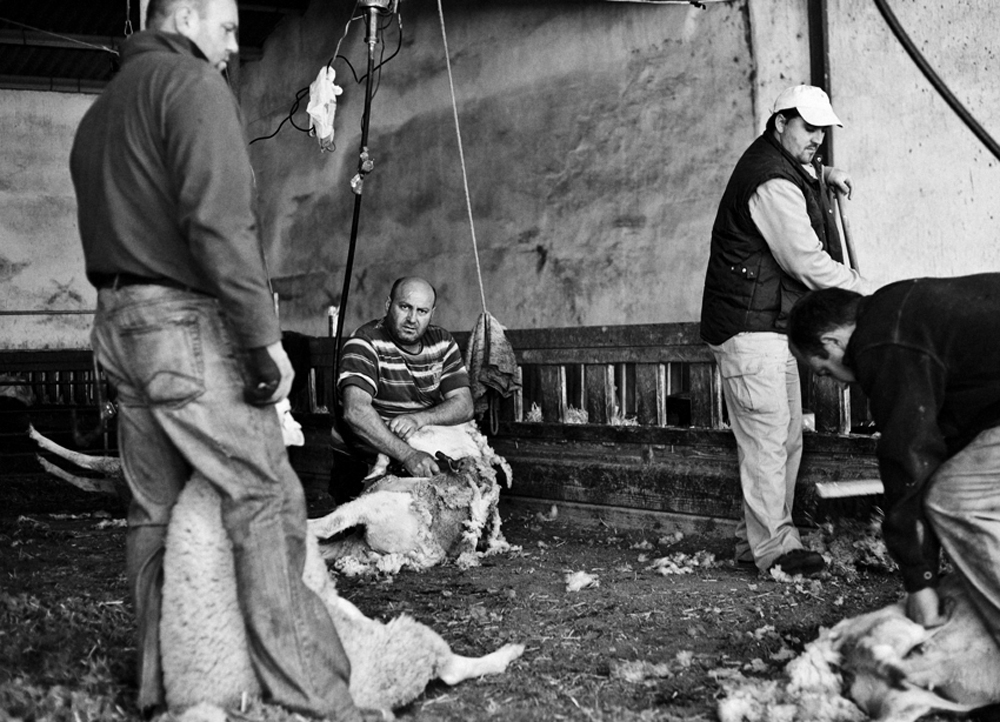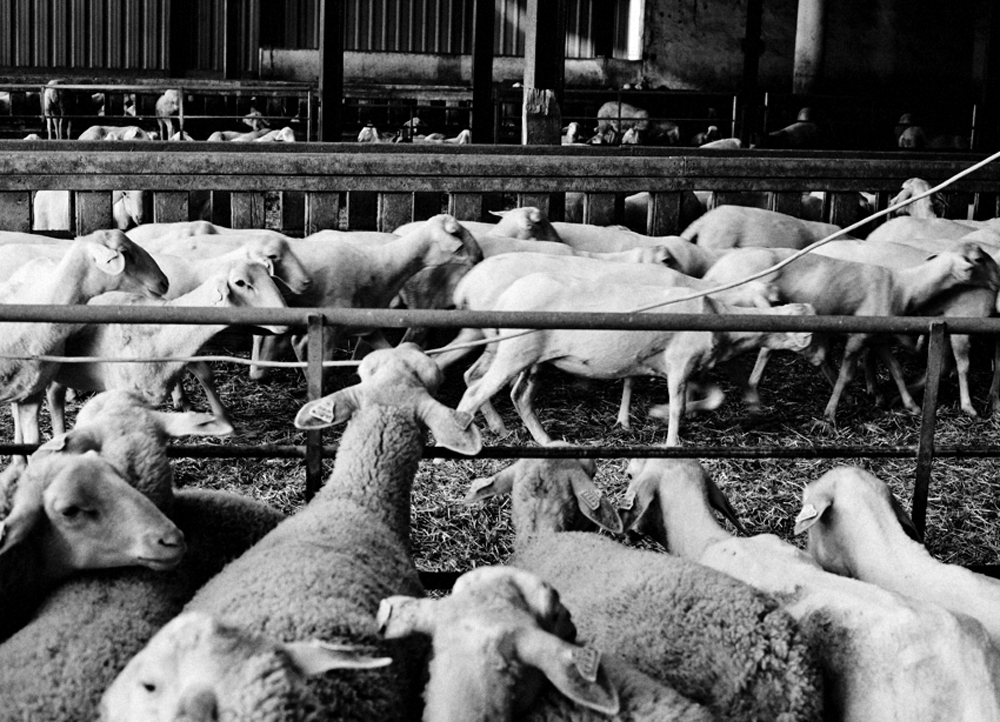Photos & text by Imanol Villota
Ivan, Denys and his four fellow Ukrainian countrymen have rested on several mattresses inside his van. No other amenities demanded. Here is an opportunity to return to their country, now at war, with some savings. There will be no rest for them over the next few weeks.
It begins at 7 AM. A journey that will last, almost uninterruptedly, for eleven or twelve hours.
Two of them are responsible for catching the sheep; they are called “pickers”. The remaining four do not raise their heads while using razors at the speed of light. The same operation is repeated until the expiration of the afternoon.
The disappearance of this ancient craft has led some Polish, Slovak, Ukrainian and Paraguayan citizens to move to Spain to fill this need. It’s an opportunity to make money. However, the crisis has also taken some Spaniards to the “stripping” or “shearing”. They complain of unfair competition, but the value of wool has reduced the profit margin for farmers; a kilo of wool is on average slightly above the euro. Everyone wonders who is being enriched with the sweat of their brow.
Three days later the cabin looks completely different. The sheep (Lacaune breed) are shorn. Next year, Ivan and his compatriots do not know if they will return. Their story is also, perhaps, one of a constant transhumance.
About the author:
Imanol Villota
BA in History from the University of Alicante, Imanol Villota is closely linked to documentary photography. He attended two Kodak certifications and also has combined personal projects simultaneously developing collaborations in prints.
His portfolio The Last Miners has been chosen by Le Journal de la Photographie. Obtained an honorable Segoviafoto mention in the La Fábrica Editorial. Has been selected like a finalist on the International prize Revela at social Rights.
He currently resides in a mountain village with the excuse to portray the identity of the inhabitants of former mining areas of northern Spain.





